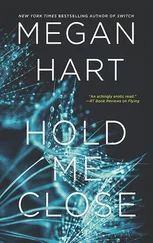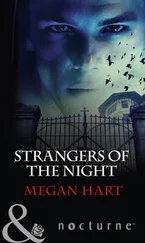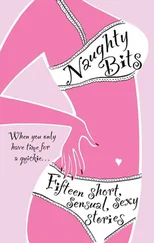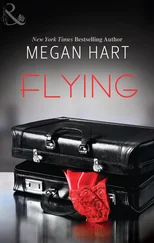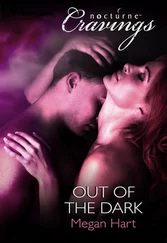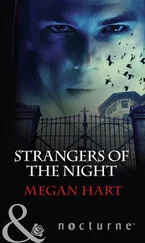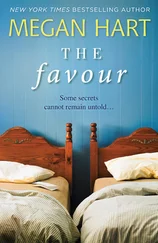It’s easier with some than others. When the deceased passes after a long illness, or at an advanced age, for example. When it’s not a surprise.
“It was such a shock.” The man in the chair in front of me cradled an infant against his chest. He wasn’t weeping, but he looked as if he had been. A little girl played quietly at his feet with the set of blocks I kept for kids. “Nobody knew this was coming.”
“I’m sorry,” I told him, and waited.
I’ve heard horror stories about families being pressured into buying the best caskets and vaults, or being forced to make decisions hastily. Some other funeral homes operated like revolving doors, shuffling people in and out as fast as possible. Mr. Davis deserved my time, though, and he could have as much of it as he needed.
“She hated that van,” he said. The baby against him peeped and he shifted it. A boy. I could tell by the baseball bat on his outfit. “Why would she want to die in it?”
It wasn’t a question that needed an answer, but he looked at me like he thought I should have one. I tried hard not to gaze at the little girl on the floor, or the baby in his arms. I tried hard to just look at his face. “I don’t know, Mr. Davis.”
Mr. Davis glanced down at his children, then back up to me. “I don’t know, either.”
Together we planned a simple service. He gave me the clothes he wanted her to wear, and her favorite colors of lipstick and eye shadow. His son fussed and he pulled a bottle from a small cooler bag to feed him while we talked. I had Shelly take the little girl to give her some cookies and juice.
It was only routine to me, but for him it was the end of life as he’d known it. I did the best I could for him, but Mr. Davis left with the same blank gaze he’d had when he came in. When he’d gone, I went down to the embalming room to see if Jared had returned with Mrs. Davis. He had. Since he wasn’t yet licensed, he wasn’t able to actually do anything until I was there to supervise, but he’d set up the table and our supplies, and turned on some music.
He was quiet, though, when we uncovered her. Usually Jared’s full of humor and jokes. Nothing disrespectful toward the people we’re taking care of or anything. Just a generalized goofiness. Today he wasn’t joking, or even smiling.
He stared at her. “She’s so young.”
I looked at Mrs. Davis. Her eyes closed, her face serene, skin pale and no longer flushed with the rosy glow of carbon-monoxide poisoning she’d have had when they found her. “Yes. She’s my sister’s age.”
Jared looked startled. “Shit. That means she’s my sister’s age, too.”
He turned to the sink, where he washed his hands vigorously. His shoulders hunched for too long. I’d forgotten Jared hadn’t yet had to deal with anyone like Mrs. Davis. He’d been with me for six months, and though we’d had our share of deaths from disease and old age, and a few accidents, we hadn’t had any suicides. We hadn’t, in fact, had anyone younger than forty-five.
When he turned back to me, though, he looked under control. “Ready?”
“Are you?” I hadn’t done anything to get started. We weren’t in a hurry.
“Sure.” He nodded. “Yes.”
“Why don’t you tell me what we need to do first.” I offered this to remind him this was a job, no matter how disturbing it might be sometimes.
Jared did, rattling off the steps of the procedures we needed to follow. But his eyes lingered too long on Mrs. Davis’s face, and he had to turn away a few too many times as we worked. I put a hand on his arm, finally.
“Do you need to take a break?”
Jared let out a long, slow breath, and nodded. “Yes. Want a soda?”
“Sure.” I didn’t need a break, but I took one anyway.
We both had cans of soda from the ancient machine I kept stocked in the lounge just down the hall. With its battered furniture and scarred flooring, it wasn’t the lounge we used for clients. Just a place for staff to eat lunch or kick back for a bit.
Jared cracked open his can and stretched out on the worn sofa while I plopped onto a floral-print armchair with mismatched cushions. We drank in silence. From above I heard the faint pitter-pat of Shelly’s heels on the uncarpeted floor.
“I guess we need some new insulation.” I looked up at the drop ceiling, then at Jared.
He nodded, staring at his can. “Yeah.”
“It’s really bothering you, isn’t it.” I watched him study his can as if it was going to tell him something secret.
He looked at me. “Yeah. Damn. Grace, I know it shouldn’t—”
“It’s okay if it does, Jared. A big part of our job is compassion.”
“It doesn’t bother you,” he said. “I mean…does it?”
“Her being so young, you mean?” The cold bubbles tickled my throat and made me cough. Coffee would’ve been better, but that was all the way upstairs.
“Yeah. And…the kids. I saw the little girl when she was with Shelly and you were still talking to the husband. I came upstairs after I brought Mrs. Davis in and she was there. She was what, maybe three?”
“Yes, I think so.”
“It doesn’t bother you,” Jared repeated.
“It’s part of the job, Jared. My job is to make this as easy as possible for her husband and family, and to make sure she’s taken care of.”
He rubbed at his eyes and tossed back some soda. “Yeah. I know. You’re right. It’s just hard, sometimes. Isn’t it?”
I thought of the conversation I’d had so recently with Dan Stewart. “It’s sad, sure.”
Jared shook his head. “Not just sad.”
“Do you want me to finish her by myself?” I asked, generously, I thought.
“No. I need the hours and it’s not like I won’t ever have to face this again.” He looked up at me. “But…how do you do it, Grace? How do you not let it bother you so much you can’t do it, but keep that compassion?”
“I find a way to put it away at the end of the day,” I told him.
“Like…?”
“Like it’s a job,” I said. “Which it is. You have to find a way to be able to put it away at the end of the day.”
“Even if you get a death call two hours after the end of the day?” Jared grinned.
“Even then.” I finished my soda and tossed the can into the recycling bin.
“So, what do you do?” he asked on the way back to the embalming room.
What did I do? I went out and paid men to fulfill my fantasies. “I read a lot.”
Jared snorted under his breath. “Maybe I should take up knitting.”
“You could do that.” We worked together for a bit longer. He didn’t need a lot of instruction. “You’re going to make a really good funeral director, Jared. Did I tell you that?”
He looked up from what he was doing. “Thanks.”
We finished without any more philosophical discussion, but when he left that night, I thought more about what I’d said. My tumultuous relationship with Ben had ended with spectacular horrendousness. He wanted to get married. I didn’t, and not because I didn’t love him. Ben had been very easy to love. In fact, I’d assumed, as he had, that someday we’d get married and have some kids. Do the family thing.
I believed in love. Believed marriages worked. My parents were still happily married after forty-three years, and in my work I saw many families bound together by the strength of their devotion to one another.
I’d been around the dead my entire life, but it had never hit so close to home until I started my internship with my dad. I arranged memorials and talked with priests, ministers and rabbis in order to help the grieving families who came to us send off their loved ones in whatever way they deemed fit. Funerals weren’t for the dead, but the living, after all. I overheard arguments between warring family members who wanted different levels of religion in the service, and assisted with preparations for nondenominational services, too. I listened to the prayers of hundreds of mourners, and though the method in which they prayed might differ, or the specific deity they implored to care for the deceased, one thing was the same. People wanted to believe their loved one was heading off to someplace beyond this one.
Читать дальше


